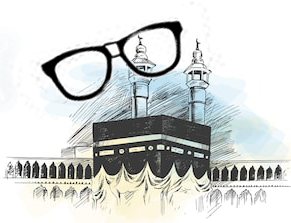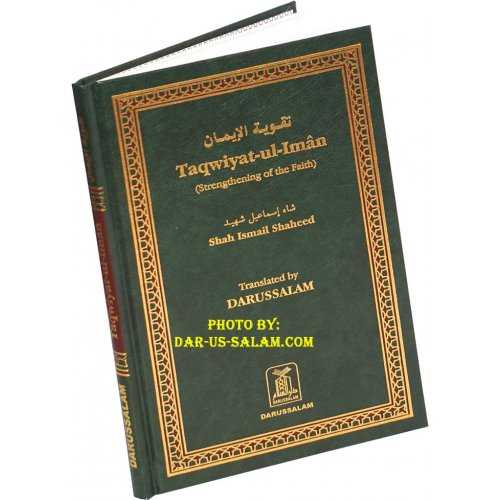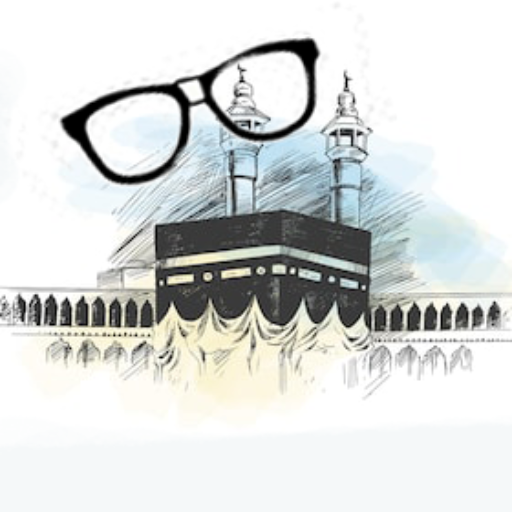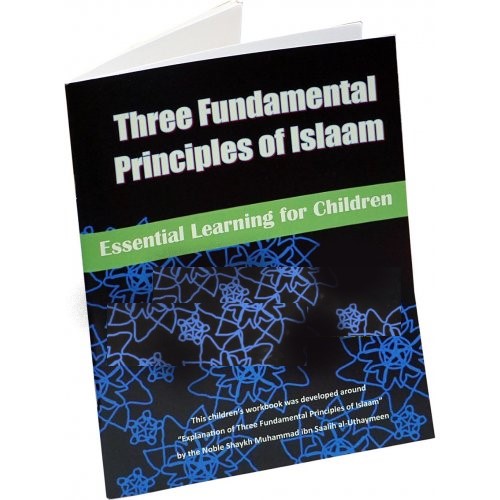The Legislated Islamic Knowledge – Shaykh Fawzan | Dawud Burbank [Audio|En]
This article, The Legislated Islamic Knowledge, originates as part of a lecture series from Shaykh Al-Fawzaan, Sharh-ul-Usool-ith-Thalaathah : Lesson 02 : Part A

Imaam Muhammad ibn ‘Abdil-Wahhaab (rahimahullaah) said:
That it is obligatory upon us to learn four matters
الأُوْلَى: العِلْمُ
The first is knowledge4
LISTEN TO AUDIO LECTURE HERE:
Shaykh Fawzan’s Explanation:
[4]:
His saying, “knowledge”: what is meant by knowledge here, is al-‘ilm ash-shar‘ee the legislated (islaamic) knowledge, because that is what it is obligatory to learn, and these matters are obligatory to learn upon every Muslim, male or female, free or slave, rich or poor, a king or a pauper, every Muslim, it is obligatory upon him that he should learn these four matters.
And this is what the scholars call al-waajib al-‘aynee, and it is what is obligatory upon every individual from the Muslims. So the five obligatory prayers which are upon the men and the women, and the congregational prayer in the mosques, which is upon the men, this is obligatory upon every individual from the Muslims, that he learns about them. Therefore he said, “it is obligatory upon us”, and he did not say, “it is obligatory upon some of us”, rather he said, “it is obligatory upon us”, meaning upon us the Muslims. So it is from the knowledge which it is obligatory to learn upon all individuals, because knowledge is of two categories:
The first of them: that which it is obligatory upon all individuals to learn, such that there is no excuse for anyone to be ignorant of it, and it is that which is such that the religion cannot be correctly established except with it, such as the five pillars of Islaam which are the Two Testifications, and the establishment of the Prayer, and the giving of the Zakaat, and the fast of Ramadaan, and Hajj to the sacred House of Allaah. It is not permissible for the Muslim to be ignorant of that, rather he must learn it.
Since learning the meaning of the Two Testifications, is to learn the ‘aqeedah (creed and belief), so the Muslim learns the creed and belief in order to act upon it, and he learns whatever opposes it in order to keep away from it – this is what is contained in the Two Testifications.
Likewise he learns the pillars of the Prayer, and the conditions of the Prayer, and the obligations of the Prayer, and the sunnahs of the Prayer; he must learn these matters in detail. It is not just the case that he can pray when he does not know the rulings of the prayer. How can a person do an action when he does not have knowledge of the action which he is performing? How can he perform the Prayer when is ignorant of its rulings? So it is essential that he learns the rulings of the Prayer, and those things which nullify the Prayer, he must learn this.
Likewise he should learn the rulings of the Zakaat, and he should learn the rulings of the Fasting, and he should learn the rulings of the Hajj, so when he wants to perform Hajj, it becomes obligatory upon him to learn the rulings of the Hajj and the rulings of the ‘Umrah in order to perform these acts of worship in the prescribed and legislated manner.
RELATED: The Fundamentals of Faith – Ibnul ‘Uthaymeen…
And this category, no-one is excused for being ignorant of it, and it is what is called al-waajib al-‘aynee that which is obligatory upon every individual Muslim.
The second category from the categories of knowledge, is that which is additional to that, from the legislated rulings which the Ummah (Islaamic Nation) together has need of, and it may be the case that not every individual has a need of it, such as the rulings of trading, and the rulings of dealing and transactions, and the rulings of religious endowments, and laws of inheritance and bequests and the rulings of marriages, and the rulings relating to crimes. These are essential for the Ummah. However it is not obligatory upon every individual from the Ummah that he has to learn it. Rather, if these things are learnt by sufficient number of scholars, such that what is required is attained, then that will suffice so that they can fulfill the need of the Muslims for legal judgments and for religious verdicts and for teaching and other than this. This is called waajib al-kifaayah (the communal obligation), such that if a sufficient number of people carry it out, then sin falls away from the rest, and if all of them leave it, then they will all be sinful.
So the Ummah must have people who learn this category since they are in need of it. However, it is not said to every individual, “it is obligatory upon you to acquire knowledge of these matters”, because this may not be possible for every individual. Rather this is specific to the people of ability and the people of capability from the Ummah. And if this is learnt by some of the Ummah, then the obligation has been established, contrary to the first category, for there, every individual is accountable for it himself, because it is not possible for him to perform these actions except with knowledge. And therefore the Shaikh said, “it is obligatory upon us”, and he did not say, “it is obligatory upon the Muslims”, or, “it is obligatory upon some of the Muslims”. Rather he said, “it is obligatory upon us”, meaning upon everyone from us as an individual obligation.
And we should know, before entering into the matters, that what is meant by knowledge, which it is obligatory upon the Ummah – whether it be that which is obligatory upon every individual, or whether it be that which is obligatory upon some, then it is al-‘ilm ash-shar‘ee the legislated (islaamic) knowledge, that which the Messenger sallallaahu‘alaihiwasallam came with.
As for worldly knowledge, such as the knowledge of industries, and professions, and arithmetic, and mathematics, and engineering, then this knowledge is permissible – it is permissible to learn it and it can be obligatory if the Ummah has need of it, then it will be obligatory on those who are capable. However, it is not the knowledge which is intended in the Qur’aan and the Sunnah, that which Allaah the Most High has praised and commended its people, and that which the Prophet sallallaahu ‘alaihi wa sallam said about it:
العلماء ورثة الأنبياء
“The ‘ulemaa, (the scholars, or the people of knowledge) are the inheritors of the Prophets.”[1]
What is meant is al-‘ilm ash-shar‘ee the legislated (islaamic) knowledge.
As for worldly knowledge, then whoever is ignorant of it, then there is no sin upon him, and whoever learns it, then it is permissible for him, and if he utilises it to benefit the Ummah, then he is rewarded for it. And if a person died, and he was ignorant of this knowledge, then he would not be taken to account for it on the Day of Resurrection.
However, whoever died and he was ignorant of al-‘ilm ash-shar‘ee the legislated (islaamic) knowledge, particularly essential knowledge, then he will be asked about it on the Day of Resurrection, “Why didn’t you learn? Why didn’t you ask?”. The one who says when he is placed in his grave, “My Lord is Allaah, and Islaam is my religion, and my Prophet is Muhammad sallallaahu ‘alaihi wasallam”, this person will be saved. It will be said to him, “Where did you acquire this from?”. So he will say, “I read the Book of Allaah and I learnt it”.
As for the person who turns away from that, then when he is questioned in his grave, then he will say, “Haa, haa, I don’t know, I heard the people saying something so I said it”. Then this person, his grave will be made to blaze with fire upon him – and Allaah’s refuge is sought – and it will be crushed upon him, to such an extent that his ribs will cross over, and he will come to be in a pit from the pits of the hell-fire, because he did not have knowledge and he did not read. So it will be said to him:
لا دريت ولا تليت ) أو لا تلوت )
“You did not know and you did not read (or you did not follow)”.[2]
So he did not learn and he did not follow the example of the people of knowledge, rather he was wasted and lost in his life, so this is the person who ends up in wretchedness, and Allaah’s refuge is sought.
So his saying, “Knowledge”, this is the legislated knowledge that is required from us as a body and as individuals, and it is knowledge and awareness of Allaah through His Names and His Attributes, and knowledge of His right upon us, which is to worship Him alone ascribing no partner to Him, so the first thing that is obligatory upon the servant is knowledge and awareness of his Lord the Mighty and Majestic, and how to worship Him.
Footnotes:
[1] This is reported by al-Bukhaaree in disconnected form in the Book of Knowledge, Chapter, “Knowledge comes before speech and action”, it follows on from hadeeth 67; and is reported by Aboo Daawood, and ibn Maajah and at-Tirmidhee from a hadeeth of Aboo Ad-Dardaa radiyallaahu‘anhu. [Al-Albaanee declared the hadeeth of Aboo Daawood saheeh].
[2] Reported by Al-Bukhaaree in abridged form as a hadeeth of Anas 1338, and also reported by Muslim in abridged form also as a hadeeth of Anas 2870, and reported by Aboo Daawood as a hadeeth of al-Baraa’ ibn ‘Aazib in a long hadeeth 4753. [Al-Albaanee declared the hadeeth of Aboo Daawood saheeh].
Posted with kind permission from Dawud Burbank rahimahullaah
—
Listen to the Full Audio Series:
Sharh Usool-ith-Thalaathah – Shaykh Fawzan | Dawud Burbank
Book Study Resources – Three Fundamental Principles

Don’t forget to comment & share. Also please click our ads, they pay the bills. jazakallahu khayr.



